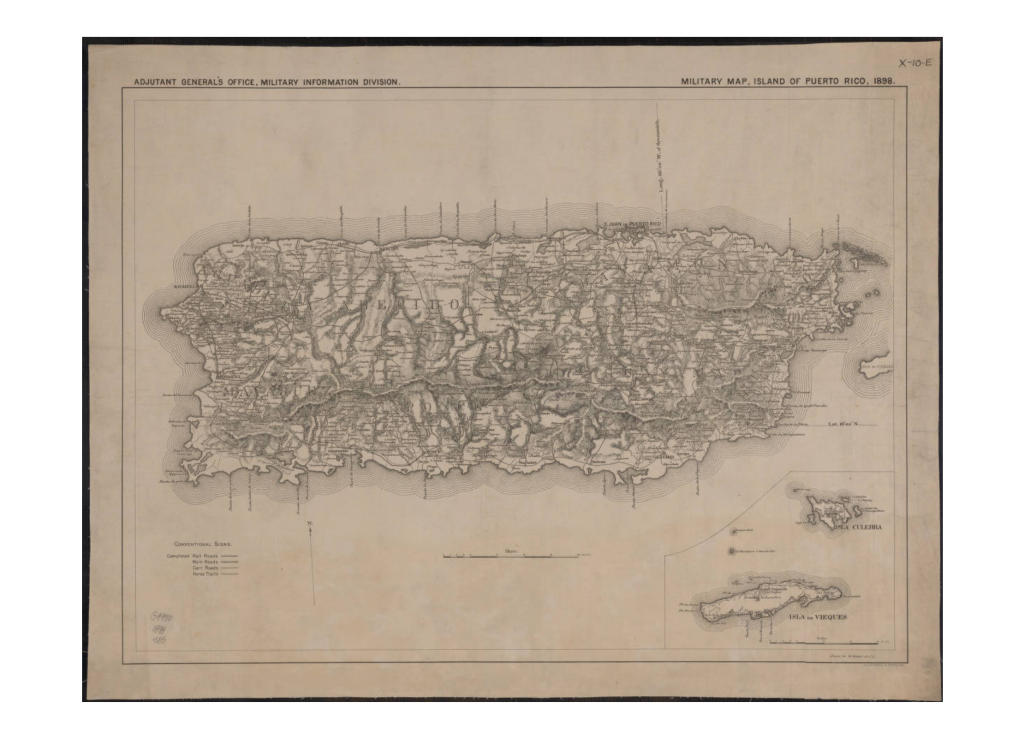
Port Rico Enslaved, written, and signed by ninety-seven Puerto Rican delegates representing the people of Puerto Rico in the council, recounts the history of the U.S. invasion, the past and current sentiments of the Puerto Rican people to the ways in which the U.S. has exercised its superiority, and the examples which they deem appropriate to show that they can govern themselves. When the U.S. first stepped ashore Puerto Rico, the people of Puerto Rico saw this as an opportunity to gain more independence. However, after the initial landing of the U.S. on Puerto Rican soil, the people of Puerto Rico had less influence and decision-making power than they had prior to the invasion on July 25th and had seen no progress towards gaining more pull within their government. The councilmen also noted in this letter to the U.S. Congress that they are aware of anti-American feelings brewing in the towns of Puerto Rico. Puerto Ricans were angry and confused as to why there had been no forward motion in their journey to independence and self-governance when the U.S’s invasion had been one of hope and promise. The message also laid out the difficulties and obstacles Puerto Ricans had overcome successfully on their own that should’ve given credit to their ability to rule themselves.
In Porto Rico Enslaved the voice of the message to Congress is that of the almost one hundred native, and knowledgeable Puerto Rican municipal councilmen. Roberto H. Todd, whose name appears as the lead writer of Porto Rico Enslaved, founded the Puerto Rican Republican Party in 1899. He represented the large group of native councilmen that, in comparison to the small number of U.S. officials, had little to no governmental power. The councilmen represented over fifty different towns in Puerto Rico. This group within the population of Puerto Rico knew more about the needs, ins and outs, and aspirations of Puerto Rico than any U.S. officials that were placed in the executive council by the President of the United States. In no way could the Americans in positions of power make more informed and knowledge backed decisions about the future of the Puerto Rican people than the native councilmen themselves. The municipal councilmen recognized the standstill progress that their people had seen since U.S. involvement. There had been no more allocation of power to the Puerto Rican councilmen since the U.S. landing. They recognized that they are the most appropriate people to govern their people, and they realized that the people of Puerto Rico have proven their capability by successfully smothering the slave trade within their land. The contributors of this message shared the view that they are the most knowledgeable, and worthy people to govern themselves and regain the control they thought they would get in the aftermath of the U.S. invasion.
During the same time that Puerto Rico was experiencing the loss of control due to the U.S, Cuba was also feeling that same loss at the hands of the U.S. as well. Although the people of Cuba saw U.S. intervention as unnecessary, the people of Puerto Rico saw U.S. intervention as an aid to complete independence. The claim that the document and its authors make is that by denying Puerto Rico its rightful independence, a message is being sent to surrounding Central and South Americans that the U.S. does not always keep its word upon invasion. By enslaving Puerto Rico, which is what these municipal councilmen claim the U.S. is doing, the U.S. is demonstrating to other Central and Southern American areas that with their so-called aid and promise of sovereignty really entails the possible loss of power and right to self-governance and the back tracking of progress already made. With the Monroe Doctrine having been stated just a few years earlier, the failure of the U.S. to keep its word to Puerto Rico could send reverberations among the other people of the Americas and lead to resistance or denial of protection from the U.S. as outlined in the doctrine of 1923.
Citation
Morey, W. Military map, island of Puerto Rico, 1898. 1898. Retrieved from the Digital Public Library of America, http://umedia.lib.umn.edu/item/p16022coll230:2785. (Accessed October 26, 2022.)
Todd, Roberto. “Porto Rico Enslaved.” 1905. In American Empire at the Turn of the Twentieth Century, edited by Kristin L. Hoganson. Boston, MA: Bedford/St. Martin’s, 2017.